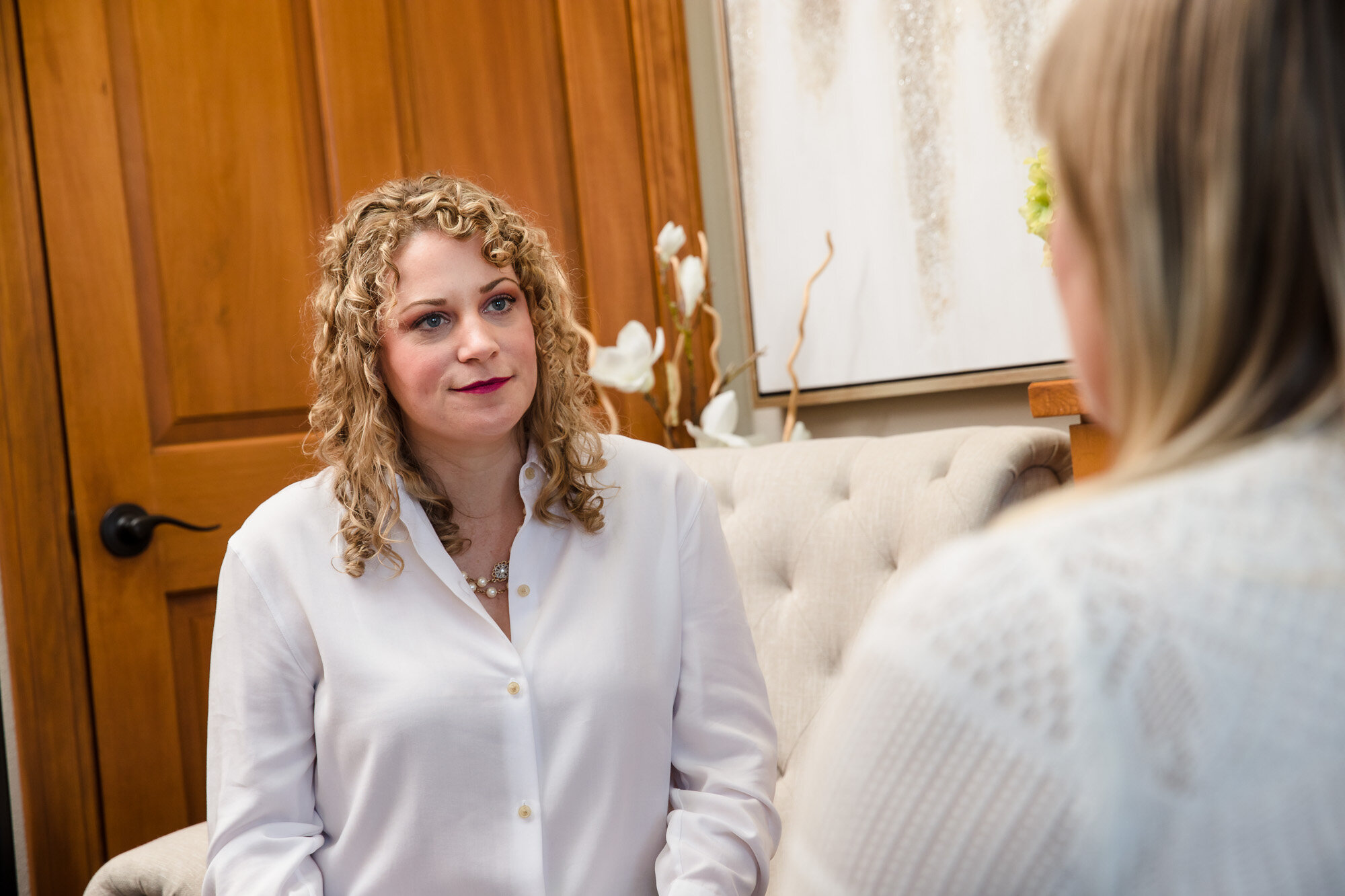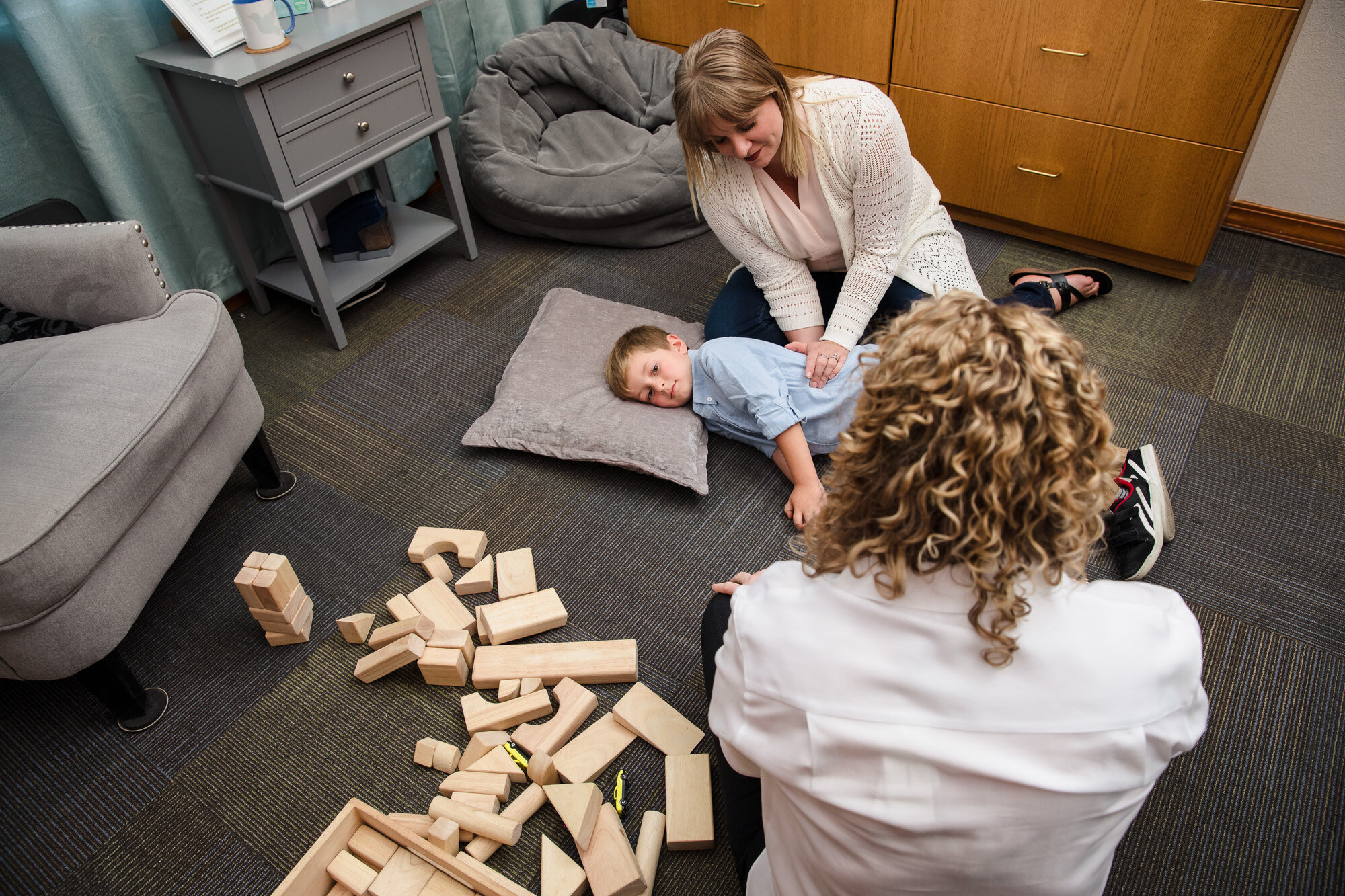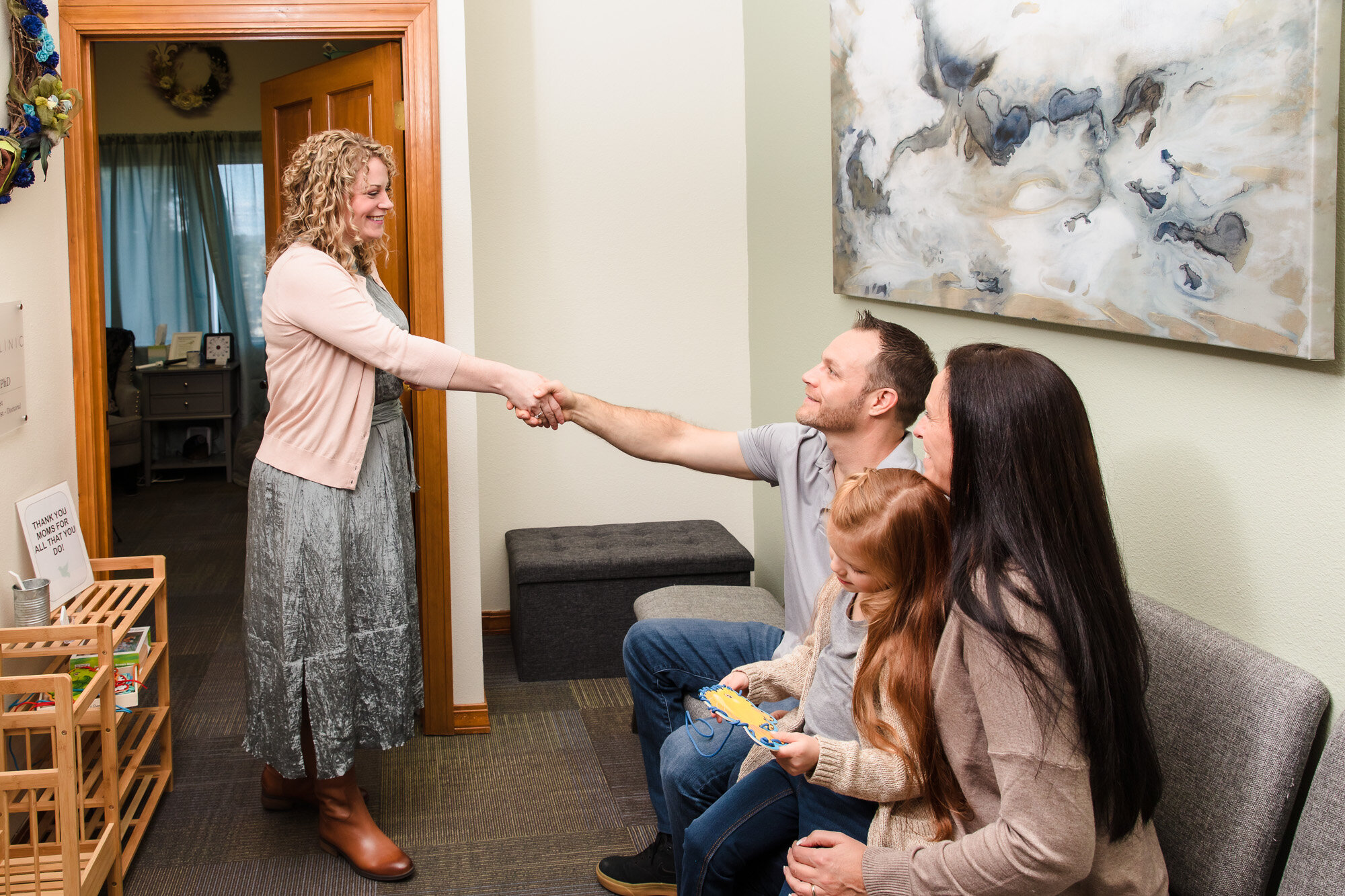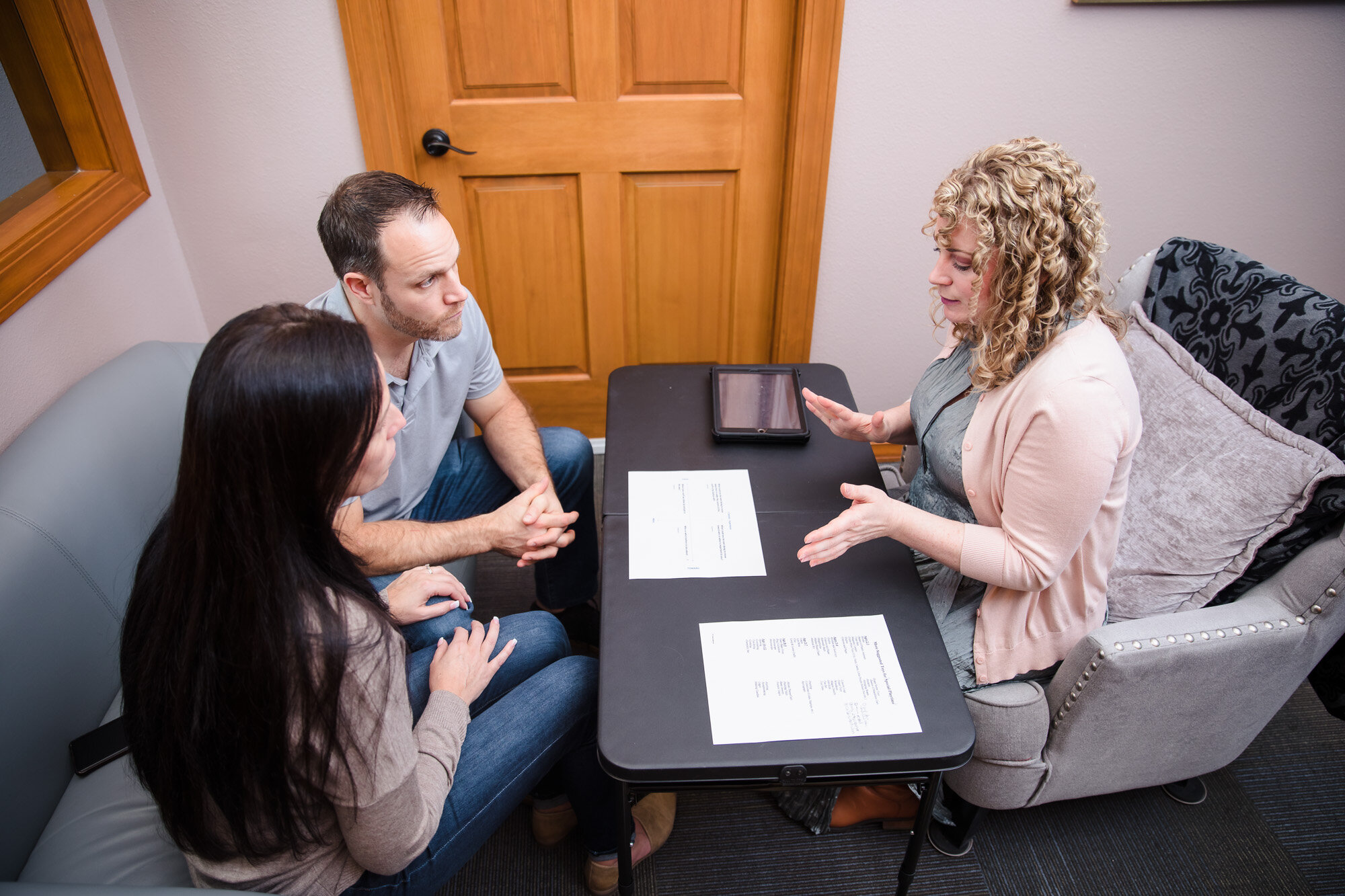Dr. Blevins discusses when a parent has a behavior or development concern for their child, but it doesn't quite feel like it's big enough to see a specialist. When you feel there probably isn't a diagnosis, what do you do? She's discussing her thoughts on how parents might approach these tough questions.
Read MoreAlternative Treatments
Today we are talking about alternative treatments for supporting your child's behavior. Alternative treatments might be things like essential oils, elimination diets, using the moon to decide when you will go out for fun activities versus hunkering down in anticipation of naughty behavior, and other types of old wives tales and Instagram / Pinterest wisdom that is not necessarily linked to evidence-based studies. Many providers, including physicians, psychologists, therapist, and others, get this question all the time. It's a very important question because it frames the way that you as a parent will approach treatment for your child and the energy and attributions you give to interventions along your child's journey.
Read MoreWhy doesn't my child listen to me?
I'm sharing a parent question and answer video I made from my new Facebook group, Positive Parenting Q and A, today.
Today's video focuses on understanding why a child might be responsive and compliant with one parent and not with the other parent and how I address it in therapy. This is a very COMMON question!
I discuss three big reasons for this phenomenon. I also discuss how I approach healing the parent-child relationship to…
A psychologist mom uses mindfulness to teach emotion regulation to her autistic kid
Today I'm chatting with Dr. Rubia Subhani. She is a psychologist practicing in Georgia and also a parent to an autistic child. Across her professional and personal journey she has developed a mindfulness practice to help her child manage anxiety and behavior flare ups.
Read MoreUsing a Calm Down Toolkit
To start off the new year we're chatting with Trina Deboree, an elementary school Media Specialist focused on standards-based reading materials and science/STEM/makerspace. She helps teachers and parents create engaging materials that help foster the love of learning in children.
Read MoreHow to Treat Child Aggression
Dr. Blevins discusses how parents and teachers can approach aggression that shows up in children. She discusses how aggression is a form of communication and how parents can start to notice what need that communication serves to meet. She also discusses which service providers are best suited to helping…
Read MoreChild Stuttering and Anxiety | Chatting with an SLP
I'm discussing child stuttering and the often observed anxiety in children today with speech-language pathologist, Kelly Clendaniel, MS, CCC-SLP. Kelly has a special interest in stuttering as well as a child who stutters. She provides up-to-date information on what parents and providers should know about stuttering. I then jump in with information about how anxiety and anxiety disorders develop and are maintained. Anxiety is increasingly understood to be…
Read MoreToddler Sleep... Get you some!
We're discussing toddler sleep!! This is a dreamy topic for many parents out there. Our expert this week is Erica Harren who is a Board Certified Behavior Analyst, or BCBA, and mom of a toddler.
Read MoreWhat is clinical behavior analysis?
I'm chatting with Dr. Ben Kennert, licensed psychologist in Michigan and Board Certified Behavior Analyst. We're discussing Clinical Behavior Analysis. It entails several different therapy modalities, including my favorites ACT and PCIT. This is a great conversation for those in the counseling or ABA fields looking to understand the concepts and how clinical behavior analysis is used. It is used very differently than ABA, so be prepared for differences.
Read MoreABA Therapy | Chatting with Traditional Applied Behavior Analysis Therapists
I'm chatting with the owners of Pacific Northwest Behavior, a Spokane, WA based ABA provider to young children with autism and other developmental difficulties. Kourtney and Steve are BCBAs, and we chat about the important ethical considerations of using ABA to honor autistic people's independence while also helping them to gain more independence.
We dive into differential reinforcement and how parents are likely to encounter this behavioral principal with any child on a typical day.
Read MoreHow to Teach Your Child to Have a Healthy Relationship with Food (and to Eat Well)
I'm chatting with Michelle Winebender, a Registered Dietitian and Nutritionist for over 25 years (and a good friend of mine). We chat about how to create healthy eating habits in young children so that they grow up to have a good relationship with food. Michelle helps with the super common questions I get "Is my kid eating enough?" and "Will my child get a nutrient deficit if I can't get them to eat more variety?"
Read MoreFlexible home learning schedule | How to Keep kids engaged
We're taking a break from expert chats today so I can bring you information that I believe is awesome and super helpful to creating a learning-at-home schedule that benefits your child and you.
I'll go into the one big secret that teachers have been doing in Finland's schools for a while now. It helps increase attention and productivity in kids, promotes better mood, and is associated with higher achievement scores and better brain development.
Read MoreWriting IEP Goals that Work
Today I'm continuing my series of expert chats with Brandie Rosen, a 25-year veteran of special education and teacher training. She's worked on over 5,000 IEPs! She shares with us valuable insight into writing good IEP goals.
IEP goals are the meat of any special education child's services. They provide the road map for what the school, his teachers, and the child will be accomplishing as part of the special education programming for the next calendar year. Brandie helps me to understand how this individualized map fits in with the general education curriculum and how it pulls services, like speech and language, to support meeting the IEP goals. We also dive into Brandie's work in training teachers, specifically with addressing anxiety in students. Brandie provides a framework for how she promotes a collaborative, expertise driven working style so that teachers can do their best work with students while students are getting all of their needs met.
Have a great day!
Dr. Blevins
Resources
Brandie's parent website: https://brandierosenconsulting.com/
Brandie's teacher website: http://learn2teachwithbrandie.com/
Here is a link to Brandie's resource page for parents; lots of good IEP content! :) https://brandierosenconsulting.com/faq-and-resources/
Read MoreRelaxing Your Body | Managing Stress
If you're like me, you've been a bit more stressed recently. It's hard not to be. On top of normal everyday life stress, we're having a pandemic and a long awaited social awakening to systemic racism.
It's hard to be present and feel 100% everyday. So, I wanted to share how I'm taking care of myself. I'm specifically going to focus on mindfulness and body awareness. They go hand-in-hand, of course. And if you feel this is a little woo woo of a topic, just hold on through the next paragraph...
Psychiatrist Bessel Van Der Kolk, M.D. wrote a New York Times Best Seller on trauma and the body, The Body Keeps the Score, that went into amazing detail about how our bodies hold the scars of emotional, verbal, and systemic trauma (in addition to physical trauma of course) through dysregulation of our fight or flight or freeze response. In the short term this can lead to poor sleep, digestive distress, and irritability. But, the long term consequences can be devastating. The ACEs Study found that chronic diseases, like hypertension, alcoholism, depression, drug abuse, eating disorders, obesity, and other poor future behaviors and outcomes, like high-risk sexual behaviors, smoking, and suicide and more likely to occur in adulthood with increased risk factors in childhood, including multiple forms of trauma. See ACEs Info here.
When I work with a child, I always consider …
Building Routines and Habits During Summer
It's finally summer!! The stress of homeschooling is over. The governor in Washington just announced that schools will be taking students in for a physical open in the fall. Ahhhh!!!
You deserve a break! You've worked hard doing multiple jobs for 3 months straight. Go ahead and plan that getaway!!
Today's learning topic is for when you come back rejuvenated from break and the kids are settling into their summer routine. Just before they start in with the "I'm bored" statements. Today's topic is about reducing kid frustration and increasing their cooperativeness through environmental arrangement.
Specifically, environmental arrangement is …
Teach Your Child to Follow Directions
I'm so excited to share with you a new e-learning tool I've developed, the How to Teach Your Child Directions e-Learning Packet. It is a free step-by-step guide of how to give effective directions to young children and how to respond to them to increase child compliance. The packet is for parents and teachers. It goes through the rationale for each step and gives examples and non-examples. I also give you pro-tips for creating your own two-week plan for using what you learn and noticing the change in your child and yourself. When you sign up to get the packet, you'll also get five emailed pro-tip videos across two weeks giving you additional information on how to stay motivated and effectively use the packet information. The e-learning packet is based on information from applied behavior analysis, acceptance and commitment therapy, and parent-child interaction therapy.
Read MoreParent's Biggest Fear #2 re: Child Therapy: Is my child crazy?
Dr. Blevins discusses another common fear brought up by parents when they've been told by someone, often well meaning, that their child may need therapy or counseling. This fear is that their child may be "crazy" or have something permanently wrong with them. Dr. Blevins discusses how this is not the correct outlook, especially with children. Children are developing rapidly, and often therapy is meant to intervene and get them back on track. With most DSM-5 disorders for children, the symptoms can be remediated with evidence-based, high-fidelity interventions, or therapy. A new way of thinking of therapy is coaching for the soft skills in life, like emotional, social, executive functioning, and language skills, that a child will need to be successful. This is similar to having a physical trainer, a coach for a sport, or a tutor in math.
Read MoreFunctional Academics During Isolation: Reduce Stress
Functional academics are the basic life skills that academic learning helps us to do competently. This gets right to the point of academics. It's where the classroom meets real life. Does your child understand why and how they might use academics in real life? Homeschooling can be fun because you can focus on exploring more rather than rote practice. Maybe you do some FUN activities at home to demonstrate the usefulness of academics (while getting them to do a little reading or math). This includes cooking, grocery shopping, fixing things around the house, getting dressed, learning routines, etc. These types of activities build math skills, reading, organization, memory, and social skills. You can go to previous Enilda Clinic videos about praise to learn more about how to really target these skills when you're doing functional academics. Be creative and take pressure off yourself and your child to sit for hours doing school work by focusing on the functional parts of academics.
Read MoreSportscast Your Child's Play to Build Their Attention
This video is for parents of young children or other caregivers working with young children. Dr. Blevins discusses how to use verbal descriptions of your child's play, similar to how sportscasters describe athlete's plays, to help children stay focused. This strategy can support your child in learning to attend to various new parts of a toy or in more complex interactive play, it helps build sustained attention, and helps reduce impulsive movement from toy to toy.
Read MoreHow Parents Can Teach Kids to Apologize
Many parents want their children to understand the underlying values behind apologizing or saying "I'm sorry". They try to help their children to engage in apologizing by encouraging the behavior from an early age. But often I see a paradoxical effect where children experience resentment, agitation, anger, and relationship distancing when they are made to apologize. This video discusses how parents can decide for themselves what values they intentionally want to teach by encouraging the behavior of apologizing, and how to teach apologizing to emphasize those values with toddlers and preschoolers. We discuss modeling, praise, approximations of the goal behavior, rehearsing, and value labeling as strategies parents may want to consider.
Read More





